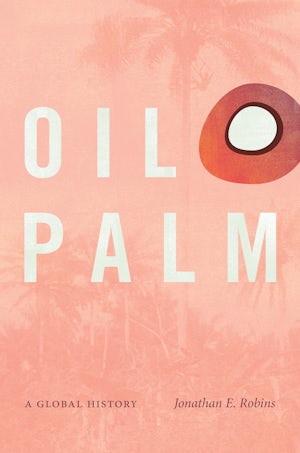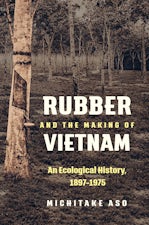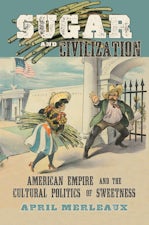Oil Palm
A Global History
By Jonathan E. Robins
432 pp., 6.125 x 9.25, 20 halftones, 3 maps, 4 graphs
-
E-book EPUB ISBN: 978-1-4696-6290-9
Published: May 2021 -
Hardcover ISBN: 978-1-4696-6288-6
Published: June 2021 -
Paperback ISBN: 978-1-4696-6289-3
Published: June 2021 -
E-book PDF ISBN: 979-8-8908-6019-4
Published: May 2021
Flows, Migrations, and Exchanges
Buy this Book
- Hardcover $95.00
- Paperback $32.95
- E-Book $24.99
For Professors:
Free E-Exam Copies
Awards & distinctions
2022 Jerry Bentley Prize, American Historical Association
2021 Henry A. Wallace Award, Agricultural History Society
By telling the story of the oil palm across multiple centuries and continents, Robins demonstrates how the fruits of an African palm tree became a key commodity in the story of global capitalism, beginning in the eras of slavery and imperialism, persisting through decolonization, and stretching to the present day.
About the Author
Jonathan E. Robins is associate professor of history at Michigan Technological University.
For more information about Jonathan E. Robins, visit
the
Author
Page.
Reviews
"Robins, whose research is so exciting that for a few weeks after reading his book I could hardly talk about anything else, documents the ‘remarkable reversal’ by which a crop native to Africa became one mainly produced in South-East Asia."—London Review of Books
"Oil Palm raises important new questions and avenues for environmental historians. . . . [and] offers a firm foundation for the future intertwining of commodity and ecology in environmental history. . . . As a work of commodity, colonial, or world history, the book excels."—H-Environment
“Through . . . Robins’s excellent storytelling and supplementary materials, we learn about oil palm’s role in almost all major events in modern world history. . . . There is plenty in this book to discover, even for someone who may consider themselves a scholar of the commodity.”—Agricultural History Review
“Engaging. . . These chapters are packed with fascinating detail.”—H-Africa
"Robins eloquently weaves together a wide range of themes--economic history, colonial history, agricultural history, environmental history, gender history, the history of science and technology, and others beside--and demonstrates how the global circulation and cultivation of the oil palm plant has transformed lives and livelihoods for countless people living across the globe."--Stuart McCook, author of Coffee is Not Forever: A Global History of the Coffee Leaf Rust
“Robins' book is a superb historical exposé of how a particular tree species from West Africa and the oil derived from its fruits have become such an astoundingly pervasive feature of the modern world. This is the kind of global history we need more of, one that highlights the connections not only between different parts of the world but also between people, plants, and the wider ecosystems of which they are a part.”—Corey Ross, University of Birmingham




